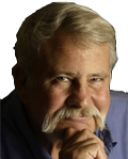Trauma
Qigong at the VA II
Childhood trauma leaves soldiers more vulnerable to PTSD.
Posted September 12, 2013
Continued from the previous blog.
Chris did say one thing that really surprised me, although, in retrospect, perhaps it shouldn’t have. I’ve run into it in the past several times and suspected it in other cases.
“In virtually every case I can think of, we’ve found that trauma started in childhood, not in combat. That’s in line with a study in Denmark on resiliency in soldiers. They found a strong correlation between unresolved childhood trauma and subsequent PTSD,” Chris says. Before their combat experience, many of these vets were functioning well, even after having experienced difficult childhoods; however, the stress of combat somehow triggered a dormant response which was amplified by their personal history.
Those traumas include the accidental deaths of family members and friends; parental alcoholism; physical, emotional and sexual abuse; being bullied and witnessing domestic violence. “When soldiers who were previously subject to domestic violence encounter similar behaviors while in combat, they feel compelled to step in to break it up,” Chris says. “One soldier came across several men raping a boy and intervened, only to find that these were the tribal elders that were punishing the boy with the consent of the father for something he’d done wrong. But for this soldier, it brought back vivid memories of being repeatedly raped at about the same age; powerless to act then and now, it left him feeling suicidal afterward.”
Chris remembers another soldier who was taught defensive driving by his horribly abusive father, the kind of high-speed evasive driving that a moonshiner or a lawbreaker might employ. He became an excellent combat driver, except that in combat situations, he didn’t care who or what was in front of him. It was as though, when stressed, he fell back into his own father’s abusive personality. The guilt of his behavior when he was the one in power has often been overwhelming for him.
There have been calls for a baseline psychological examination to determine which soldiers might be vulnerable to PTSD due to previous childhood trauma, but Chris is skeptical. “There’s absolutely no incentive for anyone to be honest in a preliminary psych eval,” he says. “In addition, there’s no training, for example, to help a sniper deal with what it feels like to pull the trigger and watch some guy’s head explode through your scope. Then, what do you do with those feeling when you come home? My ideal would be to provide soldiers with effective coping skills before they are exposed to combat and offer a training path back to civilian life upon their return. A kind of reverse boot camp which helps them de-escalate and reintegrate into their family unit and life in a healthy way. I believe this would greatly reduce the amount of money we spend on post-trauma care on several levels. Medical costs would go down, legal interventions such as for domestic violence and divorce would be reduced, and there would likely be less drug and alcohol abuse.”
The Training Mindfully with Qigong PrinciplesTM program offers the kind of training and dialogue which is a testament to a more enlightened form of therapy that the VA has been promoting with its Patient-Centered Care Program. When it rolled out this program three years ago, the VA told its employees that it would introduce creative arts into the healing environment, ensure emotional and spiritual support, encourage involvement of family and friends, provide for physical comfort and management of pain, and incorporate the nutritional, cultural and nurturing aspects of food into its treatment.
Dr. Tracy Gaudet, who was brought in to run the program in 2011, says that the medical model of America is focused on disease care, which is an essential aspect of enhancing health, but that it is incomplete because it doesn’t take into account the rest of a veteran’s life and the challenges that he or she faces.
“If we continue to approach our veterans only through the paradigm of the current medical model of the United States, much of what they need to live their life fully and optimize their health and well-being goes unaddressed,” she says. That is why the VHA is working to transform its health care from the “find it, fix it” disease care model to a personalized, proactive approach that is driven by the individual needs of the veteran, says Gaudet.
“Our goal is to design a system where we partner with our veterans to be mission ready for the rest of their lives, optimizing their health in service of what matters to them,” she says. “In the past we asked, ‘What can I fix?’ Today, we say, ‘How can I help what’s wrong with you?’ In the future, we need to say, ‘How can I help you live your life fully?’ The real opportunity for transformative health care in this country is when we put the person and their life at the center; when we get the process right, we will get the outcomes and the costs right.”
For more information on Chris and Fayne’s program, “Training Mindfully with Qigong PrinciplesTM,” visit their Web site: www.SimplyAware.com


